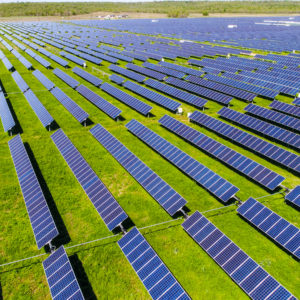The U.S. energy picture is changing before our eyes with concerns domestically and abroad that require us to re-examine our approach to energy use as a nation. And one-word comes to mind when we think about the climate and global security threats we are facing right now: urgency.
Even before Russia’s attack on Ukraine, America’s energy economy was being challenged by oil and natural gas price volatility, inadequate domestic manufacturing capabilities, lack of progress on the climate crisis and trade actions that are inconsistent with climate and deployment objectives.
Clean energy offers an antidote to both climate change and our over-reliance on energy resources from countries that do not share our democratic values or interests. But in order to avoid the worst effects of climate change, solar deployment must increase tenfold by 2030.
Clean energy manufacturing in the United States has largely stagnated and has yet to be revived with four years of ill-conceived tariffs and other disruptive trade actions. America lost more than 6,000 solar manufacturing jobs as a result of the Trump solar tariffs that President Biden recently extended.
As an example of disruptive actions that are harming our clean energy security; one company is attempting yet again to slap U.S. solar importers with massive tariffs through a backdoor effort to overthrow more than a decade of trade policy precedent.
Auxin Solar, a tiny solar manufacturer from San Jose, Calif., is asking the Department of Commerce to impose exorbitant tariffs on imports from Malaysia, Vietnam, Thailand and Cambodia. These countries account for 80 percent of U.S.-bound solar panels. The case is based on a false claim that the countries, which are making massive investment and doing significant manufacturing work, are circumventing tariffs against China.
Auxin produces less than 1 percent of the solar panels we need to meet current U.S. demand, let alone the massive growth we need to meet the climate challenge. While the solar industry wants to substantially increase U.S. manufacturing to 50 gigawatts of solar equipment by 2030, we do not make enough in our country right now, and we cannot cut off all supplies from foreign countries in the blink of an eye, and still meet near-term climate challenges.
Even a Commerce Department decision to initiate the case would disable the $25 billion U.S. solar industry. Uncertainty over product costs and supply chain reliability caused by the investigation itself would halt progress and eliminate good jobs.
Solar equipment manufacturers have been eyeing opportunities to invest in America since last year when energy tax legislation was introduced in Congress. These climate and energy policies, first included in the president’s Build Back Better plan, focus on deploying solar and building factories right here in the United States.
Companies such as Enphase, REC Americas, Maxeon, Hanwha Q CELLS and Meyer Burger are looking to create manufacturing capacity or expand existing facilities here in America, and many others have a watchful eye on Congress. If this legislation passes, we will see immediate growth in solar inverter, racking and tracker manufacturing in states across America, as well as new investments in domestic ingot and wafer and cell manufacturing capacity.
Ingot and wafer plants would help U.S. polysilicon manufacturers, which in turn will lead to business for U.S. silicon metal producers in places like West Virginia, Alabama and Mississippi.
The opportunity before us is nothing short of a solar supply chain revolution. When you think about the clean energy transition, you should also be thinking “build baby build,” but that must be paired with sensible policy.
America has the means to become more energy and climate secure, and now we need leaders to recognize the urgency of this moment. Congress and the Biden administration must swiftly act and support policies to grow our nation’s clean energy self-reliance, or miss out on the historic chance to dictate our own clean energy manufacturing and deployment future. We cannot afford to wait.


